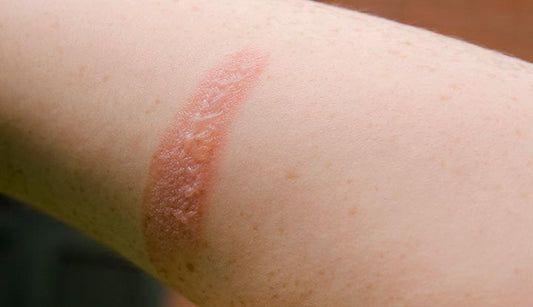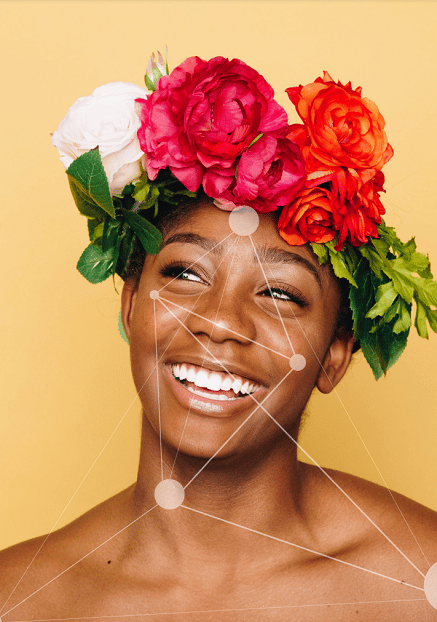Can Collagen Supplements Improve Your Hair?

As we age, our bodies naturally produce less collagen. And sun damage can further decrease our collagen production. This loss of collagen can contribute to some of the classic signs of aging in many people, such as wrinkled and sagging skin, roughness, dryness, itching, increased fragility, and skin that is more prone to breakage.
Not surprisingly, then, some people see collagen-containing products as the key to reversing these unwanted age badges, and that products - from eye creams and shampoos to oral supplements - tout the benefits as the promise. supple skin and thick hair.
There is some research to suggest that collagen supplements can improve the health and appearance of our skin; They have been shown to improve elasticity and increase hydration. Research has shown other health benefits of collagen supplements, including decreased joint pain and increased muscle mass in studies of athletes who took collagen supplements daily shortly after exercising.
But the truth is, we still don't know if collagen supplements can help fight hair loss or prevent hair from turning gray.
This article looks at some of the theories on what collagen supplements can do for hair health.
Theory: The amino acids in collagen supplements act as building blocks for thicker hair
It has been hypothesized that the amino acids in collagen supplements help your body produce more keratin, which contributes to thick, healthy hair. Collagen itself is made up of amino acids, specifically glycine, proline, and hydroxyproline. Hair is mainly made up of the protein keratin, which in turn consists of proline (among other amino acids).
Collagen supplements generally already break down into peptides of two or three amino acids for your body to process more easily.
At least two of the primary amino acids in collagen, proline and glycine, play roles in healthy hair.
More research is needed to determine whether increasing the collagen you eat, whether in the form of collagen-rich foods or a collagen supplement, can help your body produce the keratin it needs for thicker, healthier hair.
Theory: Collagen Peptides Fight Free Radical Damage in Hair Follicles
One theory as to why hair loses quality as we age centers on the battle between free radicals and antioxidants. Free radicals are highly reactive molecules that can directly damage the proteins, DNA, and lipids that make up our cells. In particular, circumstantial evidence suggests that free radicals can damage our hair follicles, the tunnel-like structure beneath our outer layer of skin where hair begins to grow, and collagen is particularly susceptible to attack.
Our bodies produce free radicals (and this production increases with age), but they are also found in our environment in things like ultraviolet rays, cigarette smoke, and other pollutants. Antioxidants, on the other hand, can reduce and neutralize these molecules, but unsurprisingly, we produce less of them as we age.
The idea is that because collagen is believed to stimulate the activity of fibroblasts, which induce the natural production of collagen in our body, oral collagen supplementation can help counteract collagen loss through free radicals by help stimulate natural collagen production.
More research is needed to determine whether taking collagen supplements can help fight free radicals in your body, including those that can damage hair follicles.
Theory: Collagen Peptides slow down hair due to graying
Free radicals have also been proposed to contribute to graying of hair, the so-called "free radical theory of graying." Our hair naturally loses pigment as it ages, but exposure to free radicals can possibly make it worse.
The theory is that free radicals destroy the pigment-producing cells in our hair, and without enough antioxidants to help defend against this cell destruction, hair begins to turn gray. Presumably, according to this theory, increased antioxidant consumption could slow down the aging process.
We need more research to better understand the effect of antioxidants on the aging process and whether collagen supplements can promote antioxidant activity in your body to help fight free radicals and slow this process.
Theory: collagen peptides prevent hair thinning
As we age our bodies produce less collagen, our dermis weakens and it is suggested that because of this, or at least in part because of this, our hair follicles become miniaturized, eventually leading to hair loss.
But because collagen supplementation has been shown to improve skin elasticity and hydration, some believe it can help prevent hair thinning as we age.
However, it is worth noting that this is one of the many areas related to collagen and hair health that still requires more research.
I need more research
Collagen is a building block of many things in our body, including your shiny mane of hair.
Seeing that we produce less collagen as we age, and unavoidable things like the sun can reduce our collagen production even more, it is natural to wonder what kind of effects this can have on the health of your hair and what you can do to defend yourself. the damage.
There are many theories as to what increasing your collagen intake can do for your hair, either with collagen-rich foods or collagen supplements.
Based on available research, collagen supplements can enhance our body's fibroblasts, which are networks of individual cells in the skin that produce collagen. And collagen, as we already know, is used by our bodies to build connective tissues, skin, and nails.
And although research suggests that collagenYesplays an active role in supporting hair health, there is still much more research to be done to determine if it can prevent hair thinning, graying, and damage to your follicles.























































































































